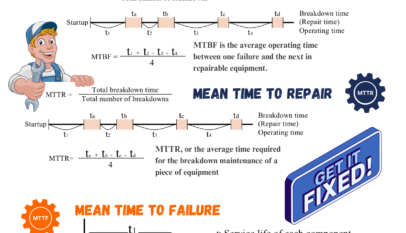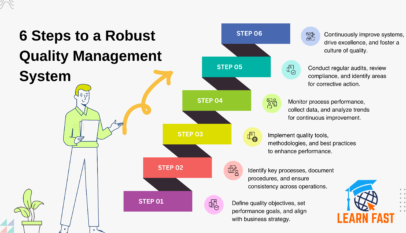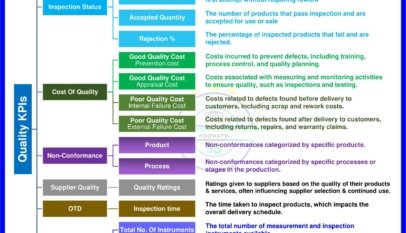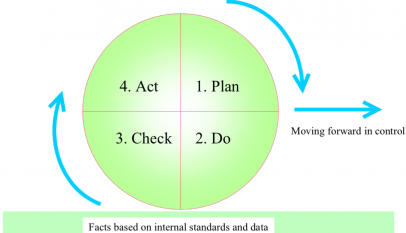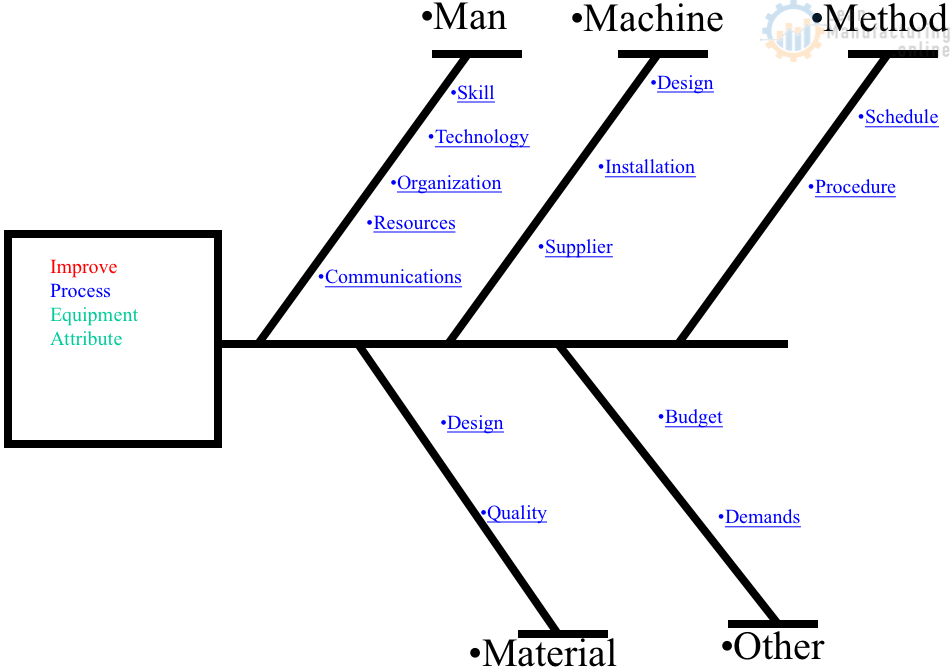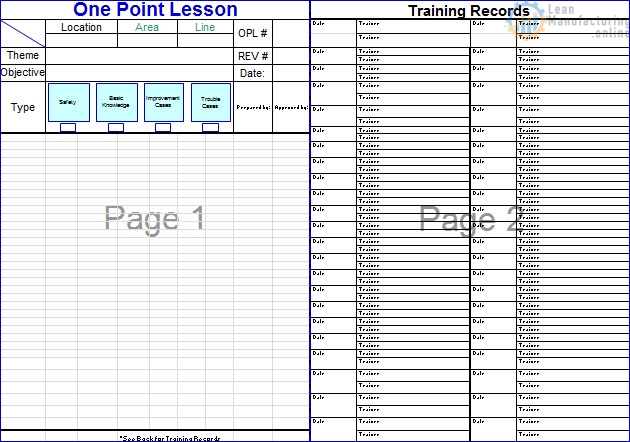Please review the questions and understand the sample answers provided. Then, consider how you could answer these questions based on your experiences. Once you complete the next module, write down your answers and practice delivering them until you can confidently articulate them. Having pre-prepared and rehearsed answers will help you come across as a seasoned project management professional. Remember, you don’t have to be asked the exact question to use these answers. Tailor them to suit different questions.
1. Tell Me About Your Project Management Experience: Question Rationale: Assesses overall project management experience and alignment with the role’s requirements.
Sample Answer: “Over the past decade, I’ve had the privilege of managing a diverse range of projects, from small-scale initiatives to large cross-functional endeavours. One notable project involved leading a team to implement a new CRM system for our organization. I collaborated with stakeholders from different departments to define project objectives and scope. Throughout the project, I actively managed risks, communicated progress to stakeholders, and ensured the project stayed on track. By fostering a collaborative environment, we achieved successful project delivery within the specified timeframe and budget.”
2. How Do You Handle Project Scope Changes? Question Rationale: Evaluates your ability to manage change effectively and maintain project alignment.
Sample Answer: “Scope changes are inherent in dynamic projects, and I view them as opportunities for improvement. When faced with scope changes, I follow a structured approach to assess their impact on project deliverables, timelines, and resources. By engaging stakeholders in transparent discussions, I identify potential trade-offs and collaboratively make informed decisions. My goal is to strike a balance between accommodating necessary adjustments and ensuring that the project’s overall objectives are met.”
3. Describe a Challenging Project and How You Overcame It: Question Rationale: Assesses problem-solving skills and how you handle real-world challenges.
Sample Answer: “One of the most challenging projects I managed was an organization-wide restructuring initiative. The project involved merging two departments, which led to resistance and conflicting opinions among team members. To address this challenge, I organized team-building workshops and encouraged open dialogues to build trust and resolve conflicts. Additionally, I actively engaged with stakeholders to gain their support for the restructuring process. Through consistent communication and a strong focus on collaboration, we successfully integrated the departments and achieved a more efficient and cohesive organizational structure.”
4. How Do You Manage Project Stakeholders? Question Rationale: Evaluates your ability to engage with stakeholders and maintain positive relationships.
Sample Answer: “Managing project stakeholders is essential for project success. I believe in a proactive and inclusive approach to stakeholder management. From the project’s outset, I identify key stakeholders and their specific needs, concerns, and expectations. I maintain open lines of communication, providing regular updates and seeking their input. By addressing stakeholder feedback and involving them in decision-making, I foster a sense of ownership and ensure their continuous support throughout the project life cycle.”
5. How Do You Prioritize Tasks and Manage Time? Question Rationale: Examines your time management and prioritization skills.
Sample Answer: “Effective time management is crucial for project success. To prioritize tasks, I employ a combination of techniques such as the Eisenhower Matrix and critical path analysis. By classifying tasks based on urgency and importance, I focus on high-priority items that directly contribute to project milestones. Additionally, I regularly review project schedules, allocating adequate time to critical activities, and actively managing potential time constraints.”
6. How Do You Handle Conflict Within a Project Team? Question Rationale: Assesses conflict resolution and interpersonal skills.
Sample Answer: “Conflict is a natural part of team dynamics, and as a project manager, I address conflicts promptly and constructively. I create a supportive and respectful work environment where team members feel comfortable sharing their concerns. When conflicts arise, I act as a mediator, encouraging open dialogues to understand the root causes and find mutually beneficial solutions. By promoting empathy and collaboration, I ensure that team cohesion remains intact, even in challenging situations.”
7. How Do You Ensure Project Quality and Deliverables? Question Rationale: Evaluates your approach to quality management.
Sample Answer: “Ensuring project quality is a top priority for me. I establish clear quality criteria and performance standards at the project’s initiation, aligning them with stakeholder expectations. Throughout the project, I conduct regular quality checks and validate deliverables against predefined benchmarks. Additionally, I encourage peer reviews and seek feedback from stakeholders to continuously improve project deliverables.”
8. How Do You Manage Risks in a Project? Question Rationale: Assesses your ability to identify and mitigate potential risks.
Sample Answer: “Proactive risk management is crucial for project success. I conduct thorough risk assessments, identifying potential risks and their potential impact on project outcomes. I maintain a comprehensive risk register, outlining mitigation strategies and contingency plans for each identified risk. By involving the project team and stakeholders in risk management activities, we collectively work towards minimizing the probability of risks occurring and mitigating their impact when they arise.”
9. How Do You Measure Project Success? Question Rationale: Aims to understand your evaluation criteria for project success.
Sample Answer: “Project success is multidimensional, and I measure it based on various factors aligned with project objectives. Key performance indicators (KPIs) such as meeting project deadlines, staying within budget, and achieving predefined milestones are essential indicators of success. Additionally, I place significant emphasis on stakeholder satisfaction, as their endorsement and recognition of project outcomes signify a successful project.”
10. Describe a Situation When a Project Did Not Go as Planned: Question Rationale: Assesses your ability to learn from setbacks and adapt.
Sample Answer: “During a product launch project, we faced unanticipated supply chain disruptions, causing delays in the production timeline. To overcome this challenge, I collaborated closely with the supply chain team and identified alternative suppliers. By adapting the project schedule and reallocating resources, we managed to meet the revised launch date, and the product’s successful reception by customers was a testament to our team’s adaptability.”
11. How Do You Ensure Effective Team Collaboration? Question Rationale: Evaluates your approach to fostering collaboration among team members.
Sample Answer: “I consider effective team collaboration as a pillar of project success. I cultivate a collaborative work culture by establishing clear goals and roles for each team member. Regular team meetings and open communication channels encourage the sharing of ideas and feedback. Additionally, I celebrate team successes and promote a sense of camaraderie, fostering a positive and productive work environment.”
12. How Do You Manage Project Budgets? Question Rationale: Assesses your financial management skills in project settings.
Sample Answer: “Managing project budgets requires meticulous attention to detail. From the project’s initiation, I develop a comprehensive budget plan, accounting for all project expenses and resource allocations. Throughout the project, I continuously monitor expenditures, comparing them to the budget plan and identifying areas where cost-saving measures can be implemented. By diligently managing project finances, I ensure that we stay within the agreed budget without compromising project quality.”
13. How Do You Handle Tight Deadlines and Pressure? Question Rationale: Examines your ability to work under pressure.
Sample Answer: “Tight deadlines and pressure are inherent in project management. To cope effectively, I prioritize tasks based on their urgency and importance, ensuring that critical deliverables are addressed first. I maintain clear communication with the team, setting realistic expectations and leveraging their strengths to meet deadlines. Additionally, I practice stress-relief techniques, such as delegation and timeboxing, to maintain focus and productivity.”
14. How Do You Motivate Your Project Team? Question Rationale: Assesses your leadership and motivational skills.
Sample Answer: “As a project manager, I understand that team motivation directly impacts performance. I lead by example, demonstrating a strong work ethic and dedication to the project’s success. Regular feedback and recognition of team members’ contributions boost their morale. I also encourage professional growth and development opportunities, inspiring team members to take ownership of their work and invest in their career progression.”
15. How Do You Address Project Risks in Uncertain Environments? Question Rationale: Evaluates your risk management approach in challenging situations.
Sample Answer: “In uncertain environments, I remain vigilant about potential risks and their implications. I involve the project team and stakeholders in risk assessments, seeking their input and expertise in identifying possible scenarios. By developing robust contingency plans and maintaining open communication, we can promptly address emerging risks and adapt the project plan as needed.”
16. Describe a Time When You Had to Lead a Multicultural Project Team: Question Rationale: Assesses your ability to lead diverse teams.
Sample Answer: “Leading a multicultural project team requires cultural sensitivity and adaptability. In a recent international project, my team comprised members from various cultural backgrounds. To foster collaboration, I conducted team-building exercises that celebrated our diversity. I emphasized the importance of open communication and actively sought feedback from team members to understand their unique perspectives. Embracing our differences enriched our problem-solving capabilities and created a harmonious work environment.”
17. How Do You Adapt Your Project Management Approach for Different Project Types? Question Rationale: Evaluates your adaptability in managing diverse projects.
Sample Answer: “Each project is unique and demands a tailored management approach. For IT projects, I favor Agile methodologies, which promote flexibility and responsiveness to changing requirements. Conversely, for construction projects, I adopt traditional project management methods, focusing on detailed planning and risk mitigation. By adapting my approach to match the project’s nature, I optimize its chances of success.”
18. How Do You Ensure Effective Communication with Stakeholders? Question Rationale: Assesses your communication strategies with various stakeholders.
Sample Answer: “Effective communication is essential for maintaining stakeholder engagement and support. I tailor my communication style to suit each stakeholder’s preferences and needs. Regular status updates, progress reports, and face-to-face meetings ensure that stakeholders are informed and have the opportunity to provide input. By facilitating a two-way communication flow, I foster a collaborative relationship with stakeholders.”
19. Describe a Situation When You Had to Resolve Conflicts Between Team Members: Question Rationale: Assesses your conflict resolution abilities in team settings.
Sample Answer: “During a complex project, team members from different departments had conflicting ideas about the project’s direction. To address the conflict, I held a team meeting where each member was encouraged to express their concerns. As an impartial mediator, I facilitated open discussions, focusing on finding common ground and shared objectives. By encouraging compromise and emphasizing the importance of teamwork, we resolved the conflict and restored a harmonious working relationship.”
20. How Do You Ensure Alignment with Project Objectives Throughout the Project Life Cycle? Question Rationale: Assesses your ability to maintain project focus on objectives.
Sample Answer: “Throughout the project life cycle, I continuously assess our progress and ensure alignment with project objectives. Regular project status reviews with stakeholders provide opportunities to recalibrate our efforts if needed. By seeking stakeholder input and incorporating their feedback, I ensure that the project remains responsive to changing needs while keeping sight of our overarching objectives.”
As you prepare for project management interviews, remember that success hinges not only on your ability to answer questions but also on the depth of your reflections and experiences. This guide provides a comprehensive overview of potential questions, delving into various facets of project management from stakeholder engagement to risk management. It’s crucial to internalize these insights, tailor your responses to your unique experiences, and practice articulately conveying your expertise. The journey to becoming a seasoned project management professional is both challenging and rewarding, and this guide is an invaluable resource on your path to interview success.

